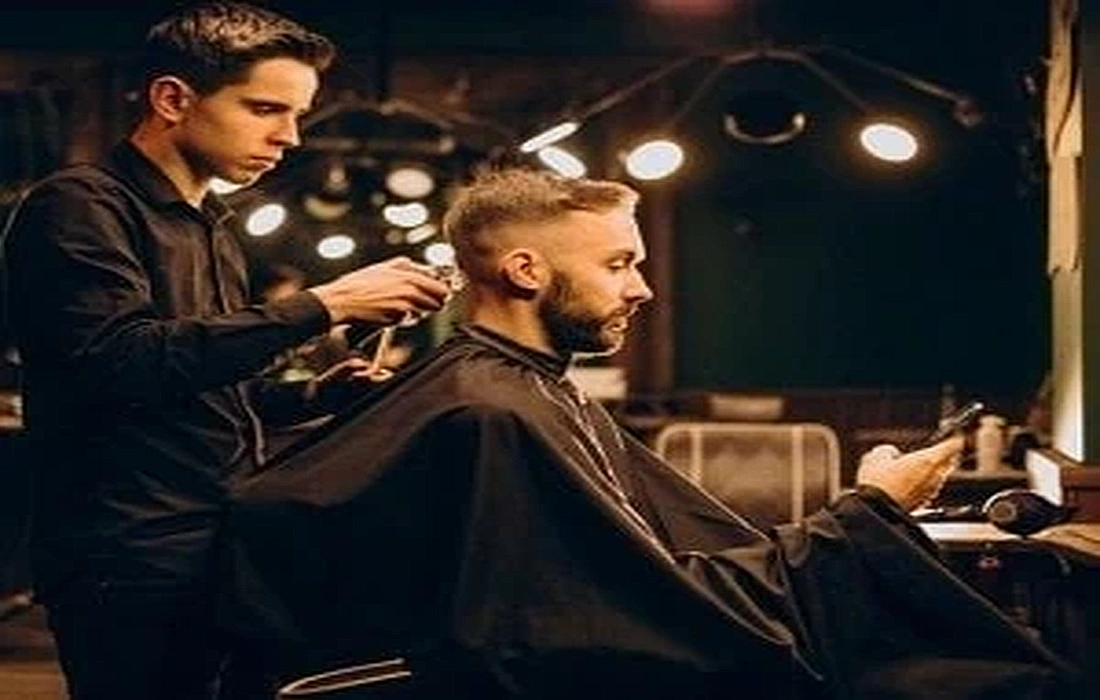This job is harmful toskin and beautyand damaging
Skin and beauty are linked to your job. Your work affects your skin’s health and appearance. It may sound surprising, but it’s true. Different jobs, depending on their conditions, can impact your skin’s youthfulness and health. The more stressful or harsh the environment, the quicker your skin can age.Stressand exposure to various environments can lead to premature aging and loss of skin health andyoung-looking skinand the more damaging factors in your job, the sooner you will experienceskin aging.
Dr. Darl Riegel, a member of the New York Health Organization, says about this:
The working conditions have noticeable impacts on the skin. The main factors include dry weather, freezing cold, smoke and dust, and similar conditions. These factors point to certain jobs, which we will explain.
The jobs that are harmful to skin and beauty
Farmers, gardeners, fishermen, and lifeguards:
Some people work outdoors in sunlight, such as farmers and gardeners. UV rays from the sun damage skin cells’ DNA and increase the risk of skin cancer. People working outside are at higher risk for skin cancers. Some develop red patches and freckles after sun exposure. Those with darker skin have more natural resistance because of melanin, which blocks harmful rays. To prevent skin cancer, it’s recommended to wear long-sleeved clothes, sunglasses, wide-brimmed hats, and use broad-spectrum sunscreens with SPF at least 15.Skin cancer

Night shift jobs:
As previously explained in the health section,SelMagzwe discussed how working night shifts is common in many jobs, and that working during night hours can seriously affect health. Sleep deprivation can have harmful effects, especially on skin health. Exposure to light at night disrupts the body’s internal clock, affecting sleep cycles and circadian rhythm.Insomniamakes the skin dull and causes dark circles and hollows under the eyes. When someone suffers fromsleep deprivationthe production of melatonin, a hormone that regulates sleep, gets disrupted. This affects skin rejuvenation and cell growth. Better sleep improves blood circulation, speeds up cell renewal, and results in healthier, more radiant skin.
Office workers:
Because they are less exposed to sunlight compared to others, they are more prone tovitamin deficiencyand over time, their skin can age prematurely or develop skin cancer.

Truck and taxi drivers:
Many people underestimate the harm caused by reflectedsunlightand UV rays through car windows. Drivers, especially truck and taxi drivers, who spend long hours in traffic exposed to sunlight, are up to 20% more at risk of skin diseases, including skin cancer.
Firefighters:
This brave group is at higher risk for skin problems, especially skin aging, due to exposure to intense smoke and dust. Since their work involves fire and heat, they face a constant risk of burns and other skin issues.

People working in humid environments:
Working in hot, humid settings can lead to skin infections, bacterial and viral sores. Fishermen, fishmongers, athletes, and pool or sauna workers, as well as butchers working in moist environments, are prone to such skin conditions, including wounds, warts, and fungal infections.
Pilots and flight attendants:
They are at risk for skin aging and cancer since airplane windows block UV-B rays but not UV-A rays, which accelerate skin aging and cancer risk. High altitudes and enclosed cabin air increase this risk. When flying above clouds or snow-covered areas, radiation reflects more, increasing exposure. Flight crew are also exposed to cosmic radiation, which raises the chances of breast cancer and melanoma in women. Therefore, they should regularly use sunscreen.

Beauticians:
This profession has higher chances of skin allergies, respiratory issues, joint pains, and other health problems. Skin contact with hair dyes, chemicals in hair treatments, formaldehyde in certain straightening and keratin products, nail polishes, and cosmetics can cause allergies and even lung cancer.Allergiesandlung cancermay develop.
Traffic police and drivers:
Their constant exposure to sunlight, smoke, and air pollution increases the risk of lung and skin cancers. It is recommended they regularly apply sunscreen and wear masks like N95 on polluted days.
Factory workers:
People handling metals like silver, mercury, and others may develop skin discoloration in contact areas, seen as dark spots. Exposure to chemicals or heat can cause boils known as occupational acne. Certain jobs that involve contact with oily or mineral-based substances, petrol, or halogen hydrocarbons can worsen or cause acne on the face and body. Excess sweating among workers adds to the risk of skin damage.Acneis often caused or worsened in jobs involving these substances, especially when the skin’s outer layer dries out. Working with animal or mineral oils, petrol, or halogenated hydrocarbons can induce or exacerbate skin eruptions and wounds.







